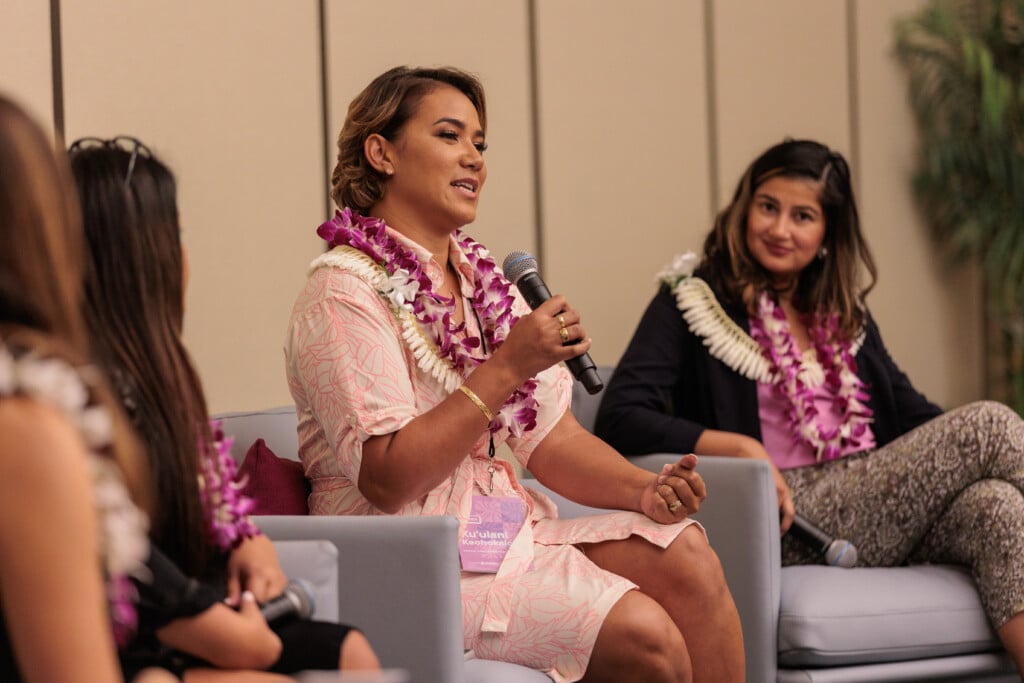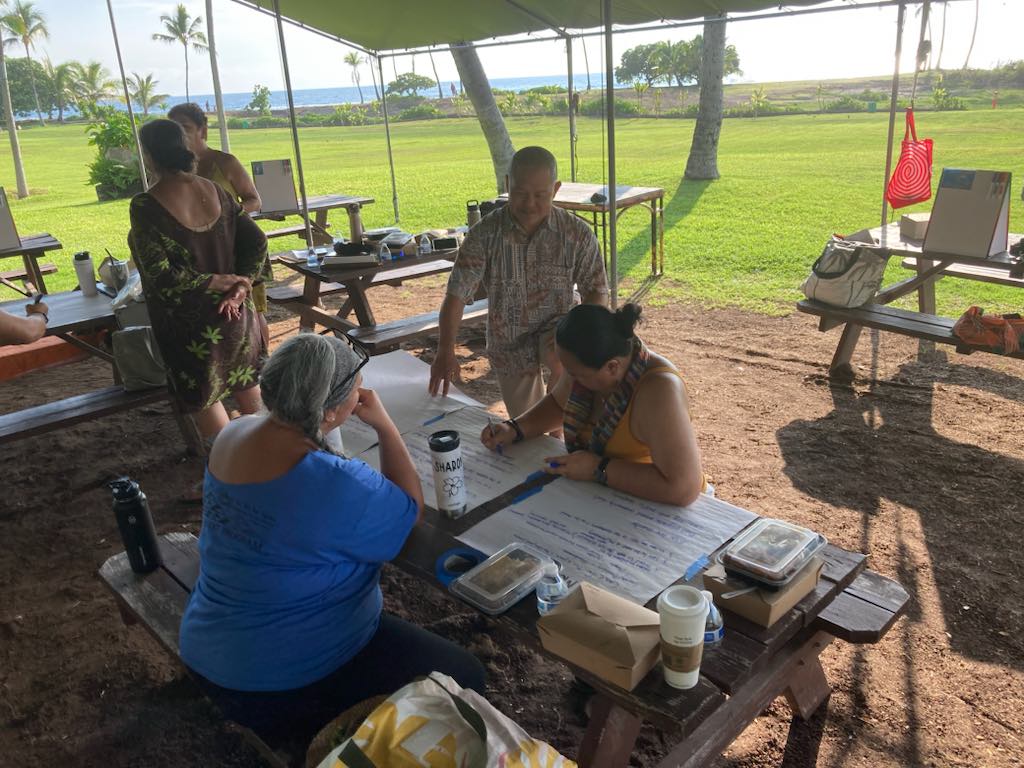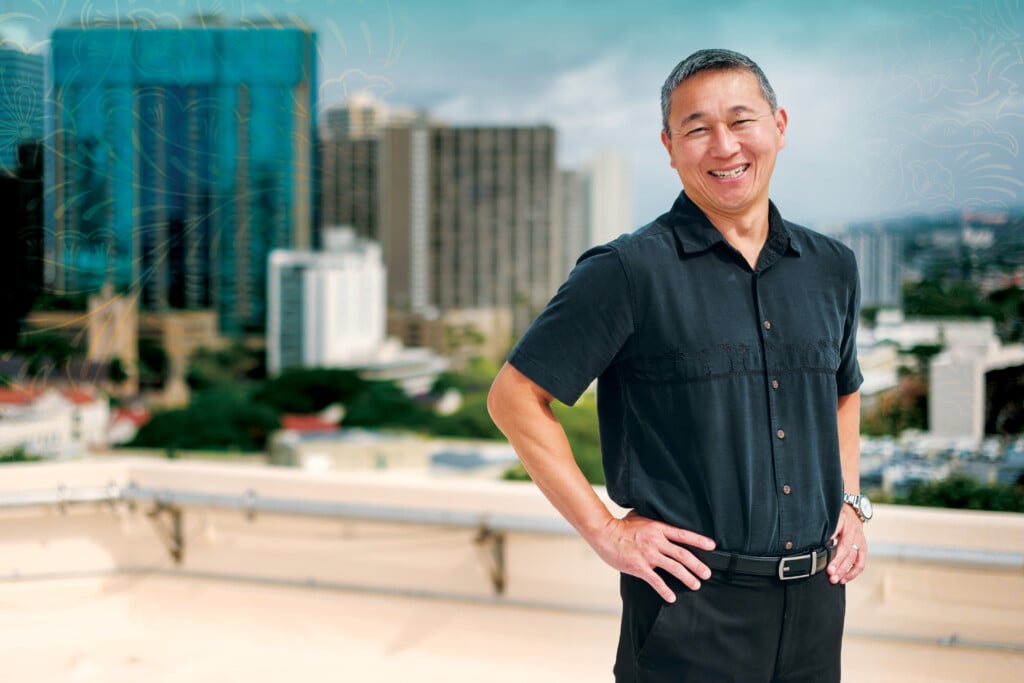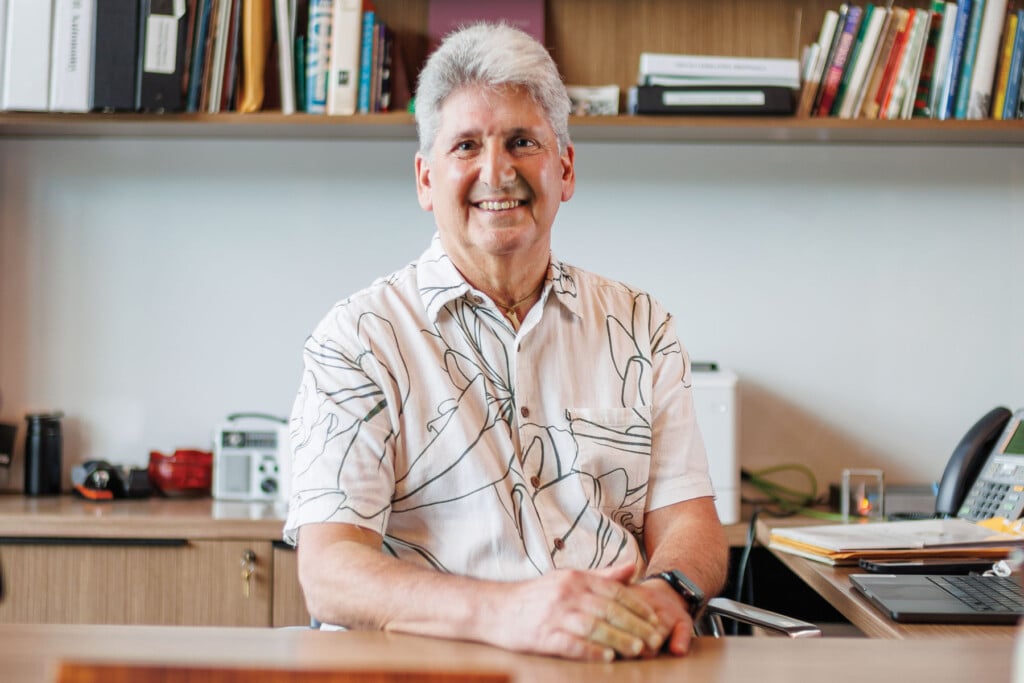New Leadership Accelerator Aims to Elevate Indigenous and Hawai‘i-Centric Leadership
The ‘Ōiwi Leadership Accelerator combines Native Hawaiian knowledge and values with Western skills to help Native Hawaiian and Hawai‘i-raised professionals achieve their leadership goals.

A new leadership development program aims to help combat Hawai‘i’s brain drain and increase the representation and readiness of Native Hawaiian and Hawai‘i-raised talent in key leadership roles.
The ‘Ōiwi Leadership Accelerator is being offered by People Strategies Hawai‘i in partnership with Kamehameha Schools Kaiāulu and the Hawaii Employers Council. The program targets early- to mid-career professionals who are currently working in Hawai‘i, are Native Hawaiian or were raised in the Islands, and are committed to improving Hawai‘i.
Ku‘ulani Keohokalole, CEO of People Strategies Hawai‘i, will run the program with partners Elena Farden and Tiffany Chang. She says Native Hawaiian and Hawai‘i-raised professionals are often not represented in the C suites of local organizations. In addition, it’s common for large organizations to first look outside Hawai‘i to fill their major leadership roles. She says Hawai‘i often has a mindset that people not from the Islands are better.
“The types of knowledge and relationships and connections and nuance and the grounding that you want leaders to have in Hawai‘i comes from Hawai‘i,” she says. “You can’t really get it from anywhere else, and it’s not really something you can teach. So I really want to, through this program, message to employers that these people already come with those characteristics and now it’s just a matter of investing in them skills-wise and really boosting their confidence so that they will apply.”
The program is also an effort to help combat the exodus of locals and Native Hawaiians. Hawai‘i’s high cost of living has driven off so many people that the state’s population has declined for seven straight years. And in 2023, the U.S. Census confirmed that more Native Hawaiians live on the continent than in their homeland.
Tatiana Tseu Fox, director and manager of Kamehameha Schools’ ‘Ōiwi Leadership Institute, says the idea is also to position Native Hawaiians and locals to be in decision-making spaces and be visionary leaders who can help make Hawai‘i more resilient. Her office is one of several partners involved in KS Kaiāulu’s efforts to grow community-minded leaders who are guided by Native Hawaiian perspectives and characteristics.
“We don’t want to have someone from the outside coming in and telling us how to do things in Hawai‘i,” she says. “Why not build that capacity right here in Hawai‘i?

Ōiwi Leadership Accelerator participants will engage in place-based facilitations at a 100-year-old fishpond, ‘Iolani Palace, the state Capitol and other areas. Pictured is a facilitated meeting at Keauhou Bay in Kona | Photo courtesy: Ku‘ulani Keohokalole of People Strategies Hawai‘i
The ‘Ōiwi Leadership Accelerator will be carried out through in-person and virtual gatherings over eight months. Its curriculum merges traditional Native Hawaiian knowledge and values with Western skills to help participants build competency in systems thinking, self-awareness, emotional resilience, knowledge of community dynamics, courageous leadership and other areas. Participants will also receive one-on-one executive coaching and network with kama‘āina executives.
The Hawaii Employers Council has 750 member companies. Sarah Guay, president and CEO, says members commonly ask the organization for help developing managers who understand emotional intelligence and can connect with and support their peoples’ well-being. That’s a different way of thinking of managers than in the past, she says.
Another accelerator goal is to help participants cultivate pride in their identities as Hawai‘i leaders. Sometimes, Keohokalole says, locals and Native Hawaiians don’t put themselves forward as leaders because they view leadership as being humble and leading from behind the scenes, which is typically not what organizations look for in a CEO-type position.
She adds that she hopes the program encourages Hawai‘i employers to commit to looking locally first when filling leadership roles: “I really want them to start to acknowledge that if they’re going to be part of the solution, the brain drain issue, it takes for them to commit to hire from Hawai‘i as well.”
HEC will offer a full scholarship to a HEC member accepted into the accelerator. Guay says this program is important for the same reason buying local eggs matters, even though they are more expensive than mainland eggs.
“It’s about investing in an individual in your organization to be part of this program that then has this broad rippling impact in the community,” she says. “I think that’s really exciting to me.”
Applications are being accepted through March 10, and the program will begin in mid-April.






